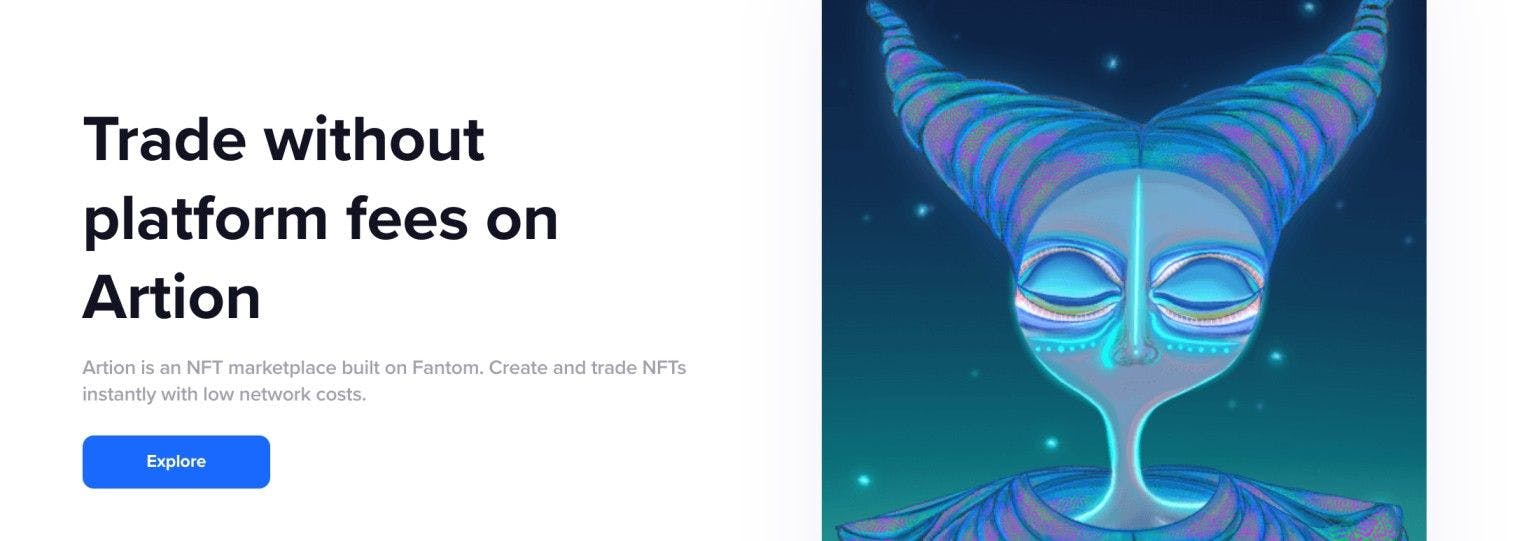The non-fungible tokens (NFT) industry is growing at a phenomenal rate. The recent buzz has led to the creation of numerous marketplaces within the community. One of the most memorable events, which pivoted the hype, is Beeple’s famous painting. The renowned digital artist sold his painting through an auction with deep-pocket bidders showing immense interest. The artwork sold for almost $70 million, making it one of the most expensive paintings by a living artist.
Since the auction, many influencers, artists, and other known personalities have sold many collectibles as NFTs. Although new, the NFT industry is becoming highly relevant in the blockchain community. With the current interest, it’s not surprising that there are numerous marketplaces like Artion and OpenSea. NFT marketplaces are platforms where you can buy and sell digital collectibles. Since NFTs are pretty different from other tokens, they are purchased differently.

Meaning Of Non-Fungible Tokens (NFTs)
NFT tokens are recognized as unique through blockchain technology. You cannot replace or interchange these tokens with another one, unlike fungible tokens. For example, fiat currencies are fungible because you can replace them with a replica. If you borrow $50 from a friend, you don’t have to return the same note you borrowed. You can give another $50 note because it’s fungible. Since NFTs are digital collectibles, every piece is unique. Interestingly, uniqueness is one of the reasons why NFTs are sometimes very expensive.
NFTs also show ownership of numerous artworks, audios, and other items sold as NFTs. Blockchain technology is revolutionizing the existence of intellectual property. These assets, being blockchain-based, are traceable, programmable, and open source. The industry focuses strongly on creation, and it has been a source of income for creators. With arts, collectibles, and gaming NFTs taking over the community, many creators join the industry.
If you have an NFT, you can go to a marketplace like Artion or OpenSea to display the collectible for sale. Buying NFTs follow a similar process, whereby interested parties can bid to purchase an NFT. The highest bidder gets the token and becomes the owner of the piece.
What Artion Is All About
Artion is a newly created marketplace powered by Fantom. Recently, Fantom announced the launching of the platform’s beta version. According to Fantom, the platform is an open-source and zero-commission platform. The platform also has some notable features, such as the Metamask Integration, a link from the marketplace to MetaMask. MetaMask is a wallet that interacts with ETH-based tokens, which means that users can manage most NFTs using MetaMask.
Users can utilize Fantom’s native token—FTM, to mint NFTs. On average, minting with Artion costs 10 FTM. Asides from not charging a commission, the marketplace reveals that all other transactions come at a low charge. This new version will also support ERC-721, which is the standard for non-fungible tokens. Fantom explained that the platform does not need coding for minting so that users can mint without technical knowledge.
Artion would enable creators to create profiles. It also includes the ability to follow an NFT or another creator on the platform. With the new feature, Artion will alert interested parties when the NFTs are available for sale. Like most marketplaces, this platform is for selling and buying non-fungible tokens. There are different methods of trading on the website.
The seller could directly put up a price, and the buyer pays for it. The seller could also decide to auction the NFT. With an auction, numerous interested buyers get the opportunity to bid and possibly be the owner of the token. During completion, the seller gives the highest bidder the digital asset and also receives payments.
Artion also explains that it would create a Fantom-Ethereum bridge, reducing the transaction costs between transferring NFTs. The Fantom team assured that with Artion’s open-source, anybody could contribute and review the marketplace’s progress. One of Artion’s goals is to keep NFT transactions fees at a minimum. It hopes to prioritize low-cost and time efficiency, especially when waiting for confirmation after the transactions.
OpenSea Marketplace
What is OpenSea NFT?
OpenSea is one of the most popular NFT marketplace globally. The platform is a decentralized platform for buying and selling digital collectibles. According to OpenSea, the marketplace collects the rarest pieces of digital collectibles. The booming non-fungible token economy has helped start-ups like OpenSea record substantial income.
In 2017, Devin Finzer and Alex Atallah founded OpenSea as one of the newest decentralized NFT marketplaces. Although the industry was not as huge as it is now, it was growing rapidly. Its existence might have paved the way for other companies to join the NFT space, developing the industry. Since 2018, the NFT industry has been in the limelight, bringing in millions of dollars till it became a billion-dollar economy in early 2021.
It pooled in crypto Influencers like Twitter’s founder, Jack Dorsey, and even Mark Cuban. These events attracted numerous creators, who sold their digital files at mouth-watering prices. OpenSea has numerous digital files for sale, such as gaming NFTs, collectibles, pictures, domain names, artworks, and many others. Currently, with 48 employees, OpenSea has over 300,000 users. The marketplace also boasts 34 million non-fungible tokens and over $4 billion in trading volumes.
How does OpenSea Operate?
Since OpenSea is a peer-to-peer marketplace, transactions are centered on the parties. The platform utilizes smart contracts to ensure each party meets its obligations. With OpenSea’s Wyvern protocol, everybody has to fulfill their part to get payments or assets. The smart contract ensures that when a buyers make payment, the seller transfers the NFT, and failure to transfer ends the agreement. After cancellation, each party retains their money/NFT.
Like most marketplaces, OpenSea requires parties to have a wallet. The wallet streamlines the process, helping parties quickly access their tokens. It’s safe to note that OpenSea does not store non-fungible tokens. However, it created a framework to help pairs find each other and transact. Before buying or selling on OpenSea, the platform mandates linking a wallet for transactions. The platform also sells using the direct sale or putting on auction. For direct sales, the buyer can check items that are for sale. Similarly, it also lists things on pre-sale, which interested parties can look forward to, pending the official release.
Competition Between Artion And OpenSea
Competition is stiff in the digital asset ecosystem. While NFTs are relatively novel, the rising number of NFT providers shows the growing competition. Things have been rough for OpenSea in the past few days. There is a controversy stirring that one of OpenSea’s employees used insider knowledge to purchase NFTs. The purchase was before the NFTs were put up publicly. One of the firm’s founders, Devin Finzer, expressed his disappointment over the recent incident.
Despite being very similar, Artion plans to operate fully as an open-source platform. According to Fantom, Artion will charge only 10 FTM for minting and not charge a commission for artworks sold. OpenSea, however, demands a notable amount on sales. The platform charges around 2.5% on all sales, and it operates mainly on the Ethereum blockchain, leading to a high cost of transactions.
Asides from keeping transaction fees to a minimum, Artion reveals plans to create a token bridge. It will bridge transactions from Ethereum, Polygon, Arbitrum, and many others. Artion’s release could be a ‘vampire attack’ on OpenSea, which might take a considerable wave of investors from the marketplace. A vampire attack is a term in DeFi, and it happens when a protocol offers a better rate than another protocol, attracting its users and customers.
Artion’s Future Plans
From Cronje’s input, Artion is willing to let people fork and create a token from it. According to him, a difference between Artion and OpenSea is the former’s willingness to allow third-party development. Since both platforms are quite similar, there is a possibility an attack on Artion could also be an attack for OpenSea. Cronje concluded that it would take three weeks before developers could create a good fork from his platform. Looking at Artion and OpenSea’s framework, there is a likelihood that Artion will compete effectively with OpenSea as an open-source marketplace. Similarly, Artion could attract some of OpenSea’s investors, operating fully as an open-source platform.

